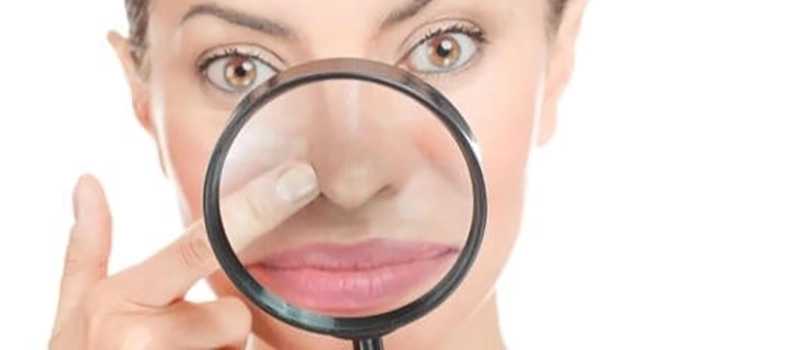
Everyone gets skin blemishes, but some people get them with much greater severity than others. If you’re one of the people who have a predisposition for greater sebum production in the skin, then there’s really little getting around the fact that you’re also more likely to get pimples, acne, and / or blackheads. Sure, none of these conditions are going to pose serious health risks, but for many people the way it changes their appearance is a legitimate cause for concern. Blackheads are an interesting case, because it’s what’s mixed in with the sebum and clogging the pores that gives them the name ‘black’ heads.
What causes blackheads, and how to get rid of blackheads? The second question is probably much more common, but knowing what causes blackheads is actually quite valuable in preventing them. Prevent them in the first place and you won’t need to ask how to get rid of blackheads. Alright, enough about that – let’s get into a detailed explanation about what can be done to deal with those unsightly black tipped swellings on your face.
Blackheads can be part of acne, but they can also exist on their own. One of the first misconceptions people have about blackheads is that the dark coloration at the top of them is dirt mixed in with sebum and clogging the pore. In fact, the black part of the clog is actually dead skin cells in the pore reacting with oxygen in the air and turning black.
This is because the pore remains open with blackheads, and that’s different from other acne-related skin blemishes. The dead skills are exposed to oxygen as they mix in with the sebum and that’s what makes them turn dark as they oxidize. That’s the physiology of what causes blackheads, but let’s look at why sebum is clogging pores and follicles in the first place.
Any discussion of what causes blackheads needs to start with age, and the puberty period where young people are in their teenage years. It’s at this time that changes in hormone levels (androgens, specifically) cause the skin to begin overproducing sebum. Spikes in sebum production can occur at any age, but they do tend to occur most regularly during teenage puberty years.
For women, these hormonal changes can also be the results of menstruation, pregnancy, or the use of birth control pills. Other factors that promote blackheads include:
Pores being blocked or covered by cosmetics or clothing
Profuse sweating
Irritation of hair follicles due to shaving
Prolonged time in areas with high humidity or grease
Health conditions like excess stress, polycystic ovarian syndrome and premenstrual syndrome (PMS)
Rapid skin cell turnover due to the effects of some medications
Use of steroid-based drugs, like corticosteroids
And finally – the appearance of blackheads on facial skin has NOTHING to do with person’s hygiene or how ‘dirty’ their face is. Even a person who has perfect personal hygiene regimens and keeps their face explicitly clean nearly all the time can still develop blackheads.
The good news in all of this is that blackheads are quite manageable. While you might not be able to completely eliminate them, it’s usually possible to reduce future outbreaks to a minimum. Here’s how:
This is the best advice, but it’s important to understand that you shouldn’t clean with just any type of soap or facial cleanser. For starters, an alcohol-free cleanser is a must if you’re aiming to deal with blackheads. Alcohol dries the skin. While you do need to dry up the skin somewhat to decrease sebum production, if it becomes overly dry then blackheads may become worse as the skin stimulates extra production from the glands.
Look for cleansers that are fragrance-free and designed for sensitive skin.
Generally speaking, inexpensive makeup is hard on the skin. It’s also hard on your pores, and makes it easier for blackheads and other skin blemishes to establish themselves. Women who are prone to skim blemished should only buy and use non-comedogenic makeup. It may not be as easy to find on store shelves, but it’s much easier to find online.
Azelaic acid, salicylic acid, and benzoyl peroxide are the reagents that are most effective for preventing non-inflammatory acne breakouts. They can be found in both prescription acne medications and over-the-counter ones that can be purchased anywhere. Prescription medication for blackheads may also contain vitamin A derivatives like tretinoin, tazarotene, and adapalene. These work by promoting a more rapid turnover of skin cells to prevent acne breakouts.
Eating a lot of fatty, greasy food has long been known to be a cause of acne. Eating a healthier and balanced diet that has less of these types of foods is one of the best ways of how to get rid of blackheads. In addition, eating better this way reduces the risk of skin lesions becoming infected.
Another aspect of how to get rid of blackheads is knowing the best ways to prevent them. There’s a few approaches that people try that actually do more harm than good. These include:
Squeezing a blackhead my make it pop and appear as if it’s defeated, but it usually irritates the skin and makes the problem worse when the blackhead reappears – which it likely will.
Scrubbing isn’t helpful either because it removes the sebum layer on the skin and this prompts the sebaceous glands to produce even more sebum to replace it. The end result is the likelihood of more blackheads. Definitely not something that can be included in how to get rid of blackheads.
Steam baths continue to be recommended as a treatment for blackheads because the heat and humidity is believed to open up the pores. Really not much truth to that, so skip the time and save the hot water for good, long showers.